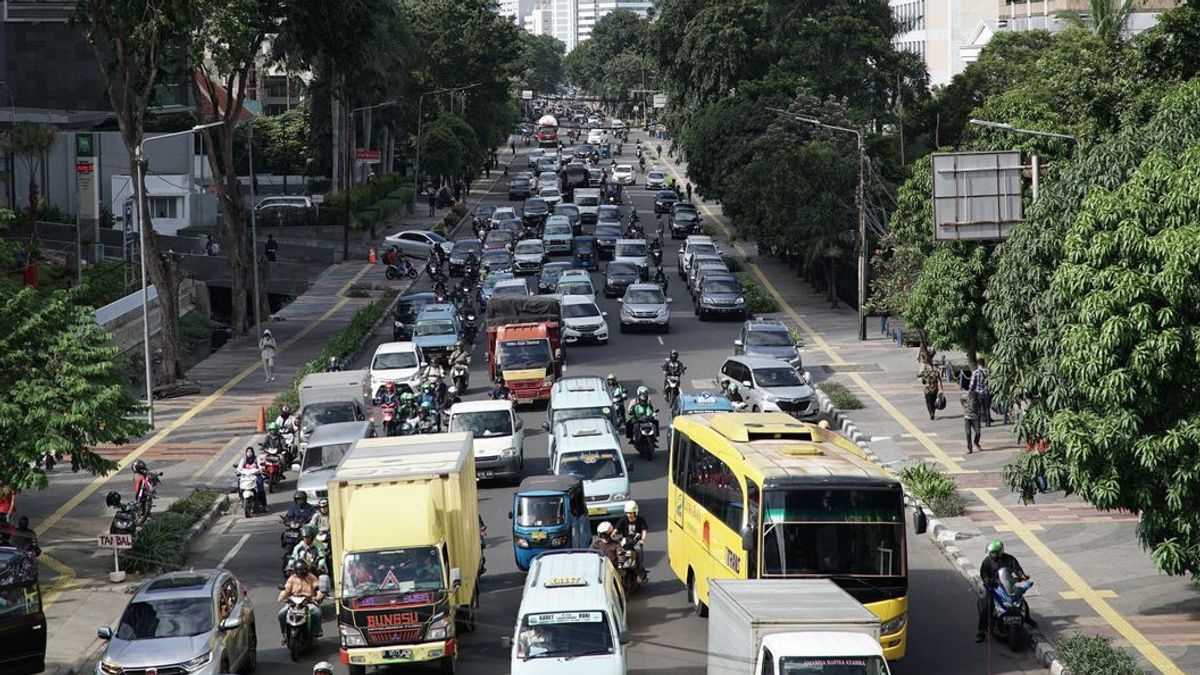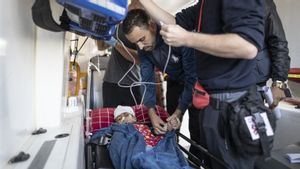JAKARTA - Public policy observer, Agus Pambagio, assesses that there are four factors that cause public transport arrangements in the Jabodetabek area to continue to lead to problems.
First, Agus said the initial problem with the complexity of the transportation system was the failure of the government to control the family planning (KB) program. Agus considers that the family planning program has weakened after the reforms.
"BKKBN is still there, but it doesn't function like it used to. Human growth is currently very high, especially with COVID-19, pregnancy is very high. Not to mention urbanization," said Agus in a webinar discussion, Wednesday, August 12.
The second factor is the failure of the state to regulate spatial planning in accordance with the statutory regulations. Agus considers the government to be disorderly in regulating spatial planning.
He said there were areas where the designation was not clear. For example, the Kemang, Kebayoran, Depok, and BSD areas, which were originally intended for housing, became many entertainment areas.
"We have never followed the spatial planning law that has been agreed upon in Jabodetabek in an orderly manner. Therefore, it is difficult for the central and regional governments to develop their transportation system," said Agus.
The third factor is the development of urban public transportation not based on community needs and the ability of the government to develop the region, but rather on carrying out projects that are sometimes not included in the road map produced by the state.
"Suddenly the idea emerged to build a hyperloop (fast train), or o-Bahn. So, the policy change was not reviewed and did not follow existing policies, but left because of lobbying or pressure from investors," he said.
The fourth factor is the implementation of policies developed not comprehensively across sectors. Many transportation regulations are overlapping and weak in enforcement. "There are a lot of rules now. However, rules from one another are always ambiguous. There are also many penalties that don't work," he continued.
Way outFrom these problems, Agus has a number of inputs to fix the complex arrangement of the transportation system. First, carry out a moratorium or freeze on land permits outside the agreed spatial plan.
Second, revise the mass transportation program in Jabodetabek and develop a blue print for public transportation, namely the Jabodetabek Transportation Master Plan.
"Avoid building new public transportation outside of those already stated in the agreed design RITJ. Then, limit the ownership of private vehicles. For example, what do you do with the stagnant ERP," he explained.
In addition, the construction of public transportation in Jabodetabek may not be based on investor proposals. Then, limit the ownership of private vehicles through progressive taxes, after public transportation is truly integrated.
The English, Chinese, Japanese, Arabic, and French versions are automatically generated by the AI. So there may still be inaccuracies in translating, please always see Indonesian as our main language. (system supported by DigitalSiber.id)











